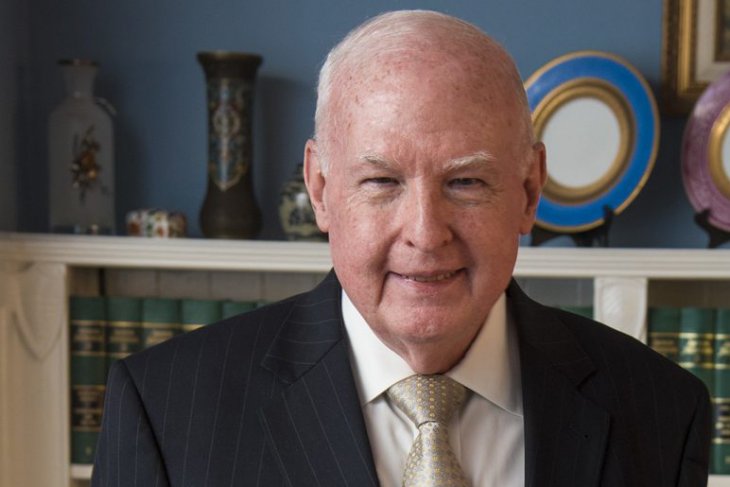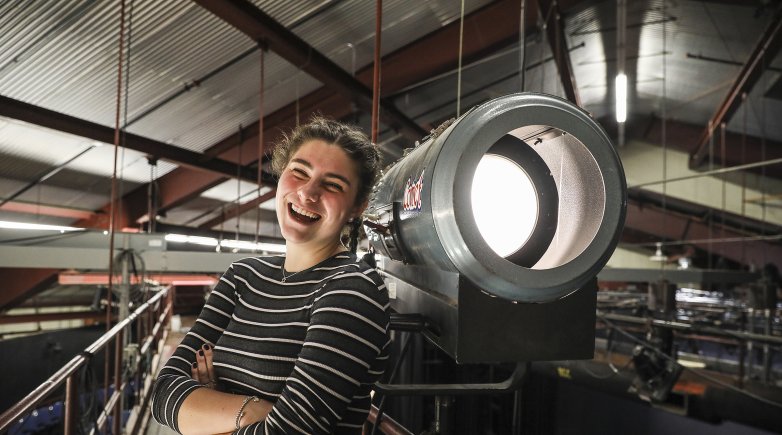Cletus Lyman

"The way the news organizations covered homicides was just so anonymous. And just so wrong.”
Jayvon Mitchell Pendleton had just passed the civil service exam for a job with the city of Philadelphia’s water department when he was shot and killed as he and a friend walked in his neighborhood on March 2, 2016. He was 20 years old.
Tamara Johnson, 21, was studying to be a neonatal nurse and was the single mom of a 2-year-old daughter. She was gunned down in her Point Breeze neighborhood on April 12, 2009.
Alexander “Tito” Martinez, 23, had passions for doing hair and makeup and for art. He was killed in a stickup on Jan. 9, 2012.
History remembers them a little better today thanks to Cletus Lyman ’63 and his Philadelphia Obituary Project (phillyobitproject.com).
Disheartened that so many victims of homicides in his adopted hometown were relegated in the official record to an anonymous dot on a map, Lyman launched the website last year to ensure an appropriate memorial for the slain.
“News reports would provide the intersection where a homicide occurred,” Lyman observes. “They would provide the age of the victim, and whether they died on the scene or at the hospital, but no further information.”
This urban journalistic practice, common in major U.S. cities, didn’t sit well with Lyman. He grew up in Hazleton, Pennsylvania, population around 23,000, where, he noted, “Everybody who died got an obit.” He left Hazleton to attend Exeter, then Yale, class of 1967. Lyman moved to Philadelphia to attend graduate school at the University of Pennsylvania, from which he also earned his law degree, in 1971. The next year, he founded Lyman & Ash, a small law firm in downtown Philadelphia “with a history of protecting the rights of individuals.”
As an attorney dealing solely with civil matters, Lyman had not spent much time in criminal court until he was called several years ago for jury duty. When he and other prospective jurors were interviewed to serve on cases, he was struck by how many people had a connection with or were related to a homicide victim.
Given that so many people in Philadelphia had such connections and knowing that the media presented impersonal and perfunctory accounts of many of them, Lyman laid the groundwork for his website. Begun in September 2016 and launched in June 2017, the site features photos and obituaries for Philadelphia’s previously forgotten homicide victims. Lyman, currently the sole benefactor for the project, which he runs as a nonprofit organization, has retained an editor and two journalists to gather information, write and post the obituaries.
The team has created a compendium of life stories, celebrating achievements, educational records, personal connections and distinct qualities. The website also features names and photos of victims still to be commemorated, with requests for information.
The project is progressing smoothly, now that there is a live site populated with stories. It wasn’t so easy at the beginning, Lyman recalls. “People thought we were the cops or undertakers; we didn’t get much cooperation,” he says. Now that the team can point to a critical mass of obituaries, the response has shifted. Many people are eager to share details of their loved ones’ lives. In some of the obituaries, a killer is mentioned. In others, readers are encouraged to call a tip line with any information.
The initiative has garnered the attention of the media. Lyman was featured on a segment of the local NPR station’s All Things Considered program. The Associated Press and a London publication have covered it.
For Lyman, The Obituary Project is meaningful and rewarding. He says, “The way the news organizations covered homicides was just so anonymous. And just so wrong.”
Editor's note: This article first appeared in the spring 2018 issue of The Exeter Bulletin.



